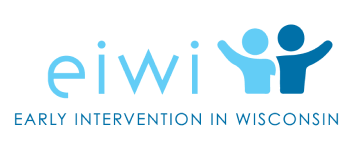Welcome to the Wisconsin Birth to 3 Program!
We invite you to explore the foundational resources listed below. These resources have been compiled to help support you as you begin your work in early intervention. We’re glad you’re here!
Homegrown Resources
Essential Websites for the Birth to 3 Program: A quick reference to several major state and national websites related to early intervention
Orientation Bundle: A RESource developed collection of resources to support orientation to the Wisconsin Birth to 3 Program.
Birth to 3 Program Operations Guide: A DHS document that outlines the essential requirements needed for local Birth to 3 Programs to operationalize the program. Practice Guide
Birth to 3 Program: First 1,000 Days Wisconsin Child Find Campaign: DHS created ready-to-use materials that promote the Birth to 3 Program and are designed to help counties and referral partners explain the program to families.
Birth to 3 Program Guiding Principles: Principles adopted by the Governor’s appointed Interagency Coordinating Council in December 1988 to outline what the Program believes to be important and to provide a framework for decision-making.
Birth to 3 Program: Why is Early Intervention Important?: A video released by Family Voices of WI about why early intervention is important and how the Wisconsin Birth to 3 Program can help.
National Resources
Acronyms List: A collection of acronyms associated with services to young children with disabilities and their families developed by the Early Childhood Technical Assistance (ECTA) Center.
The DEC Recommended Practices: The Division for Early Childhood (DEC) Recommended Practices provide guidance to practitioners to help bridge the gap between research and practice by highlighting those practices that have been shown to result in better outcomes for young children with disabilities, their families, and the personnel who serve them. Practice Guide
The 7 Key Principles: A list of the foundational principles from the Early Childhood Technical Assistance (ECTA) Center that, through research, were found to be necessary for supporting a system of family-centered services and supports in early intervention. Article – Read time: 5 minutes
Seven Key Principles: Looks Like/Doesn’t Look Like: This document elaborates on the 7 key principles, listing the concepts underlying the brief statements. Each principle also has descriptive statements illustrating what the principle should “look like” in practice. There are also descriptions of what it “doesn’t look like.”
Mission and Key Principles Module: Part of the EI Universal Curriculum series created by the Early Childhood/Early Intervention Professional Development Community of Practice. This self-paced module provides information and examples of the 7 Key Principles for early intervention. It provides insight and access to resources that help support practitioners as they partner with families in early intervention.
Foundational Pillars of Early Intervention Module: Part of the EI Universal Curriculum series created by the Early Childhood/Early Intervention Professional Development Community of Practice. This self-paced module provides guidance on five major themes or pillars of EI practice including: Family family-centered practices, Children’s Learning, Natural Environments, Adult Learning, and Quality Teaming.
CEC-DEC Initial Practice-Based Professional Preparation Standards for EI/ECSE Standards: A resource of the Division for Early Childhood (DEC) that includes professional development standards for all professionals working in Early Intervention and Early Childhood Special Education settings.
Legal Requirements
Individuals with Disabilities Education Act (IDEA): The federal law that makes a free appropriate public education that is tailored to a child’s individual needs available to all eligible children with disabilities.
IDEA Part C: This resource page, produced by the ECTA Center, describes the section of IDEA that includes provisions for serving infants and toddlers with disabilities from birth to age 3 and their families.
Department of Health Services Chapter 90 (DHS 90): The Chapter of the Wisconsin Legislative Code outlines the implementation of a statewide program of early intervention services for children from birth to age 3 with developmental needs.




